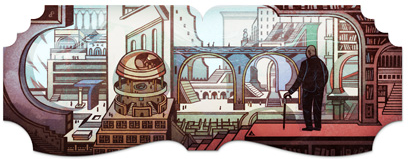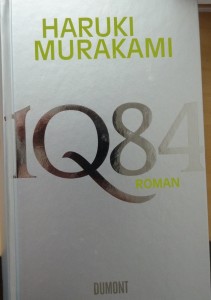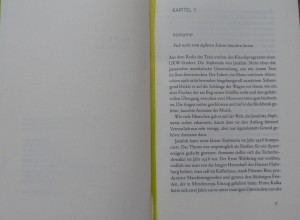One of the nicest things about Linux (and Open Source software in general) is that new versions often offer clear measurable improvements on the previous ones. And another is that this does not usually require abandoning whatever might have been worth keeping from other computer-ages. In particular, if one has very old software, there’s a good chance that one can still keep them working, even if they are written for a completely different operating system, through the wonders of emulation. In my case, this applies to Windows 3.1-era dictionary cdroms, and to Motorola 68000-era Mac software.
Recently, I had somewhat lapsed in performing the necessary tweaks to make these old programs work on my laptop (a decidedly modern 4-core Lenovo), but on upgrading Fedora, I decided to try again. It’s quite amazing that, through the wonders of Wine, I can enjoy again the Grand Robert de la Langue Française
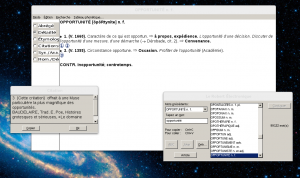
(originally available for MS-DOS and Windows 3.1) as well as the American Heritage Dictionary
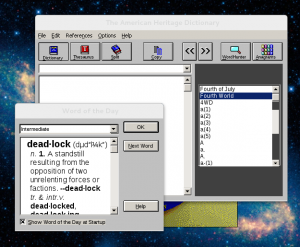
(though I use the O.E.D instead when I’m connected to the ETH network). The Grand Robert is the best anti-pedant tool I know against so-called défenseurs de la langue française; it usually reveals that their favorite anglicisms are perfectly French (e.g., opportunité, in the sense of “occasion, circumstance”, which goes back to 1355 in French, and is at least as French as Baudelaire…)
I’m even more impressed to be able to boot the equivalent of my old Mac SE30,
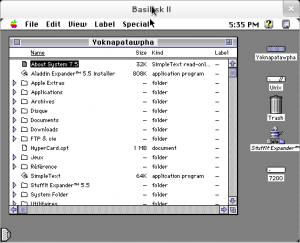
and thereby play with, or recover, the old files I used to work with during my PhD thesis and before. (In fact, the emulator boots in something like 1.5 seconds on my laptop, which is about a hundred times faster than it ever did in real life…) Afficionados will note the realistic 512 x 384 resolution of the screen.





